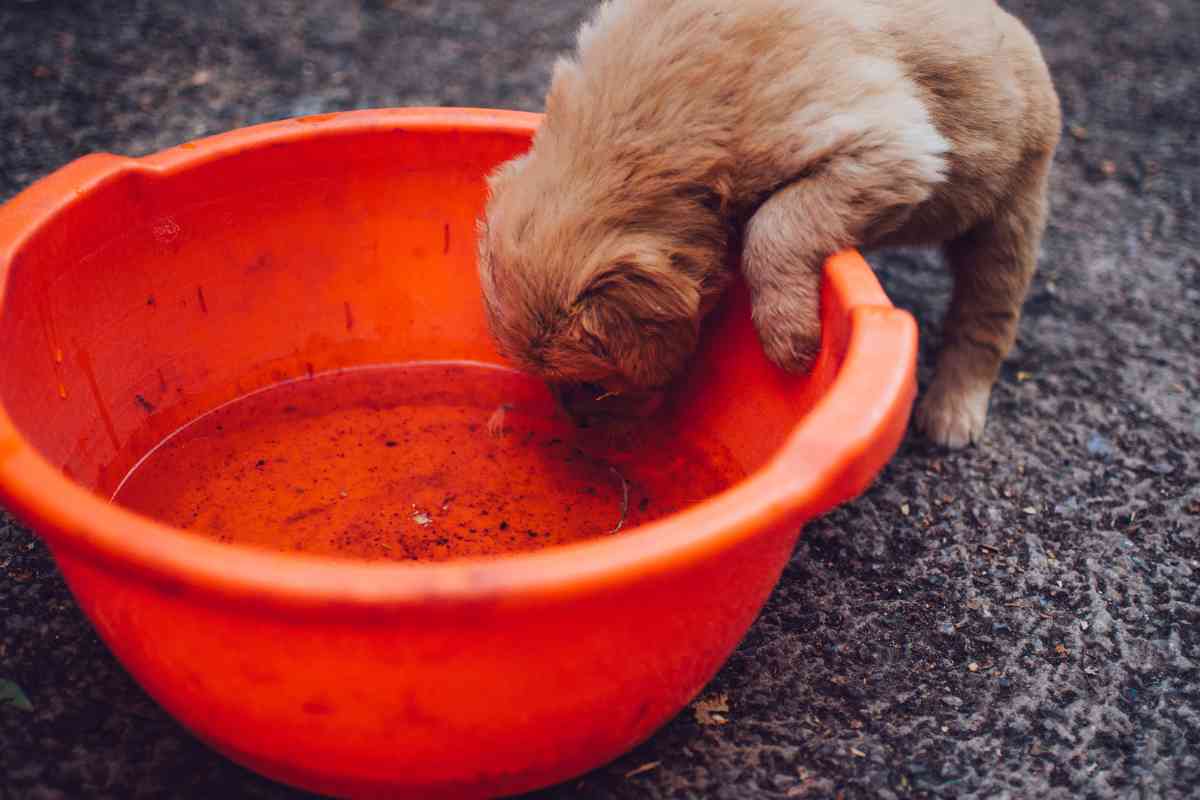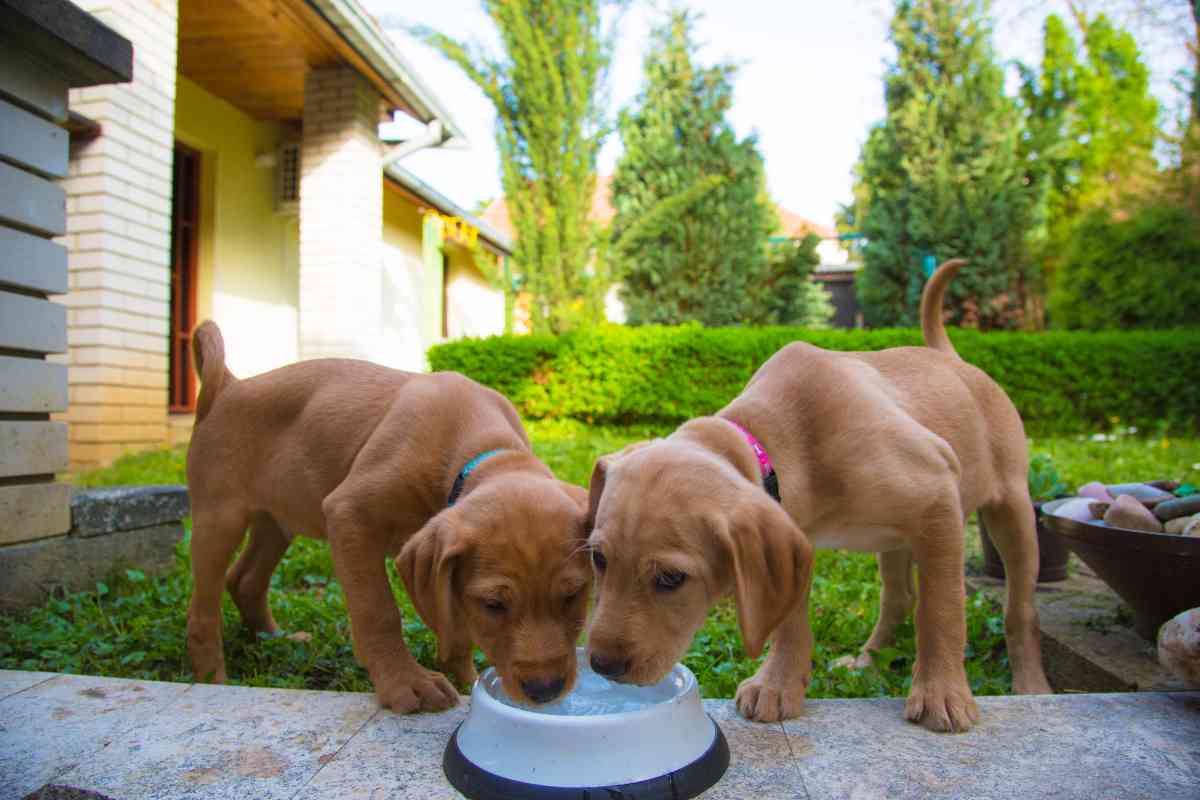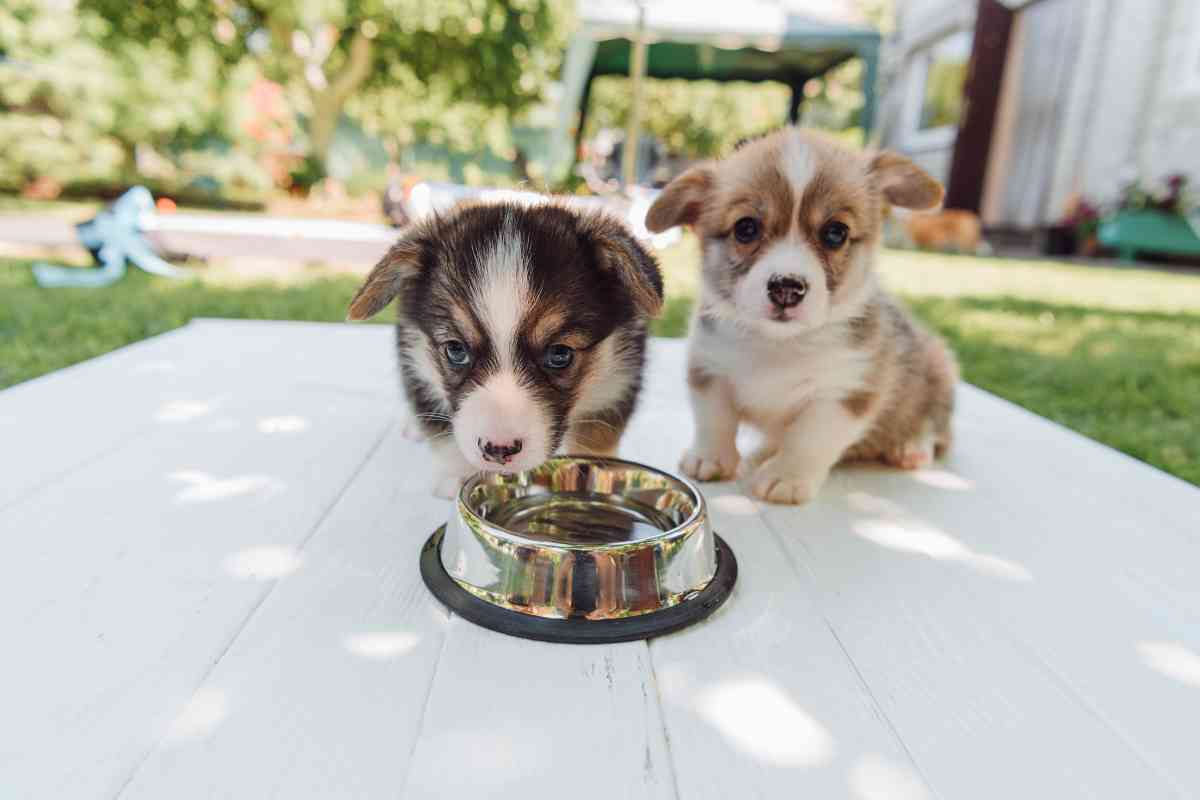How Often Should You Give a Puppy Water?
Ensuring that our puppies are properly hydrated is fundamental for their health and development. As pet owners, it’s our duty to monitor their water intake and adjust it as necessary. Puppies require varying amounts of water based on factors like body weight, age, diet, and weather conditions.

Related Post! Should I Leave Water Out For My Puppy All Day? Pros And Cons
How Often Should You Give a Puppy Water?
Generally, a puppy needs about a half cup of water every two hours. However, there are variations; active puppies or those in warmer climates may need more. We must be vigilant for symptoms of dehydration such as dry gums or lethargy and equally cautious of overhydration.
It’s crucial to consistently check and refill their water bowl, ensuring a constant supply of clean, fresh water. Establishing a puppy water schedule aligned with their feeding times is beneficial. This practice aids in preventing digestive upset and guarantees they consume enough water throughout the day. By monitoring their drinking habits, we can prevent potential health issues and foster good hydration habits from a young age.
Key Takeaways
- Puppies generally need a half cup of water every two hours, depending on their body weight.
- Consistent access to clean water is vital, with scheduled replenishment to prevent dehydration.
- Monitoring your puppy’s water intake is essential in avoiding overhydration and promoting overall well-being.
Puppy Hydration Guidelines
Proper hydration is vital for a puppy’s health, requiring a careful balance between water consumption and avoiding both dehydration and overhydration. Understanding the balance with food and identifying warning signs is key.
Calculating Water Intake by Body Weight
Monitor your puppy’s water intake closely to ensure they’re receiving adequate fluids. As a general rule, puppies should consume about half an ounce to one ounce of water per pound of body weight daily. This can vary depending on their activity level and diet. For instance:
| Puppy’s Weight (lbs) | Water Per Day (ounces) |
| 5 | 2.5 – 5 |
| 10 | 5 – 10 |
| 20 | 10 – 20 |
| 30 | 15 – 30 |
Always consult with a vet for individualized advice.
Balancing Food and Water Consumption

Ensuring the correct balance of water with their food is crucial. Puppies fed primarily dry food need more water compared to those on a wet food diet. Monitor your puppy’s urination frequency; consistent, clear urination is a positive sign of proper hydration.
It’s key to consult with a veterinarian to adjust for individual needs.
Setting Up Water Stations
For optimal pup care, we recommend setting up a designated “hydration zone.” This area should feature a stable bowl to prevent spills, and it’s important to change the water at least twice a day to maintain freshness. A specialized puppy water bowl might be considered to control the amount of water and prevent over-drinking.
- Location: Opt for an easily cleanable area, such as tiled floors, to manage any spills efficiently.
- Hygiene: Utilize stainless steel or ceramic bowls for maintaining cleanliness.
Water Intake and Potty Training
Effectively integrating water intake with potty training is essential. To minimize overnight accidents, it’s advisable to restrict water intake in the evenings. After drinking, promptly taking your puppy to their potty spot within 15 to 20 minutes can help them associate water consumption with using the bathroom outside or on their puppy pads.
- Schedule: Consistently provide water to your puppy post-naps, play sessions, and meals, aligning with their feeding routine.
- Supervision: Closely monitor your puppy’s water intake and guide them to their designated potty area as needed.
Balancing Water Supply During Crate Training

While crate training, it’s crucial to strike a balance between providing sufficient water and keeping the crate clean, similar to a den. A clip-on water bowl or a dispenser can ensure a steady water supply without occupying excessive space or causing spills. Always be vigilant about the water level and its cleanliness, particularly if your puppy is on medication or specific diets that could heighten their thirst.
| Crate Training Stage | Water Availability |
| Early crate training | Limited duration |
| Overnight | Minimal to none |
| Post-potty training | As needed |
Adapting your water management strategy is key to supporting your puppy’s health and aiding in their crate and potty training process.
Identifying Signs of Dehydration and Overhydration
Being vigilant about the signs of dehydration, like lethargy, dry gums, and excessive panting, is critical in puppies. In contrast, overhydration symptoms may include bloating, lethargy, and changes in urination habits. Immediate veterinary consultation is crucial if you observe any of these signs to prevent serious health complications.
Related Post! How Long Can A Dog Go Without Drinking Water?
Conclusion
In summary, ensuring proper hydration for your puppy is a crucial aspect of their overall health and training. Establishing a designated hydration zone, integrating water intake with potty training, and adjusting water supply during crate training are key strategies for managing your puppy’s hydration needs. Monitoring for signs of both dehydration and overhydration, such as pale gums, dry nose, or excessive salivation, is essential. Remember, the right balance of water intake is vital for your puppy’s health, digestion, and development.
Frequently Asked Questions (FAQs)
How much water should my puppy drink each day?
Puppies typically require small amounts of water several times a day. The exact amount varies, but a general guideline is half an ounce to one ounce of water per pound of body weight. Monitor your puppy for signs of dehydration like thick saliva or loss of coordination, and consult your vet for specific recommendations.
Can puppies drink too much water?
Yes, puppies can consume too much water, leading to overhydration. Symptoms include bloating, lethargy, and dilated pupils. Limit water intake to prevent issues, especially during crate training and before bedtime.
Are there any signs of health issues related to water intake?
Yes, changes in water intake and urination can signal health issues. Increased thirst and urination can be signs of diabetes or kidney disease in puppies. Conversely, a loss of appetite, vomiting, or diarrhea may indicate dehydration or other health concerns. It’s important to consult your vet if you notice any unusual changes.
What if my puppy refuses to drink water?
If your puppy shows reluctance to drink water, try adding flavor, like a small amount of chicken broth, to encourage drinking. However, if the issue persists or is accompanied by other symptoms like dry nose or lethargy, seek veterinary advice.
How does hydration affect my puppy’s training?
Proper hydration is important for maintaining brain activity and overall health, which can impact training effectiveness. Regular bathroom breaks after drinking help in potty training. Also, a well-hydrated puppy is more alert and able to focus during training sessions.
Can certain foods affect my puppy’s hydration?
Yes, the type of food can influence hydration. Dry food requires more water for absorption and digestion, whereas wet food contains more moisture. Always ensure fresh water is available, especially after meals.
Remember, each puppy is unique, and factors like activity level, diet, and breed can influence their hydration needs. Always consult with a veterinarian for personalized advice.